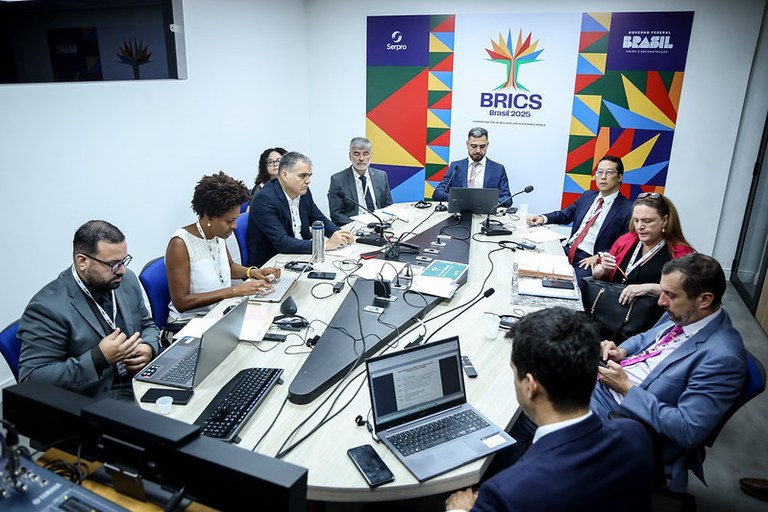BRICS discusses partnership for industrial development, innovation, and technological cooperation among bloc countries
Brasil’s MDIC and MEMP integrate the PartNIR Consultative Group, where debates about common interests in the context of the New Industrial Revolution have started

From Brasil’s Ministry of Development, Industry, Trade, and Services
To foster industrial development, innovation and technological cooperation at BRICS, the member countries of the economic bloc created the Partnership for the New Industrial Revolution (PartNIR), a BRICS industry track, in 2021. Identifying shared interests and exploring the challenges and opportunities created by the New Industrial Revolution are among the objectives of this track, which hosted online meetings with virtual participation of the technical bodies of all bloc countries this Thursday and Friday (March 20 and 21).
Under coordination of Brasil’s ministries of Development, Industry, Trade, and Services (Desenvolvimento, Indústria, Comércio e Serviços /MDIC) and Entrepreneurship, Microenterprise and Small Business (Empreendedorismo, da Microempresa e da Empresa de Pequeno Porte /MEMP), these two technical meetings aimed to prepare the discussions that will be held during the Industry Ministers meeting scheduled for May 21. In the context of the New Industrial Revolution —which addresses the transformations through which industry and society have been going vis-a-vis the impacts caused by new technologies— the PartNIR Consultative Group focused on priority issues regarding the following themes:
Artificial Intelligence
Artificial Intelligence (AI), one of the main motors of digital transformation, was among the agenda items. BRICS countries talked about the importance of investing in ecosystems for a sovereign AI that takes into account national realities and languages to fulfill the needs of businesses and citizens. In this sense, they discussed the importance of AI technical autonomy, data control, and digital infrastructure. The Brazilian Presidency is committed to promoting initiatives that can face the challenges and identify opportunities for AI development among member states.
Smart manufacturing and robotics
In the global landscape, where countries are using smart manufacturing and robotics to strengthen industrial competitiveness, the delegations shared their perspectives on the theme, focusing on the importance of these technologies for economic transformation.
As for intelligent manufacturing, conversations addressed the potential of this technology to support sustainable development by optimizing the use of resources and reducing environmental impact.
The advancements bolstered by Artificial Intelligence (AI), the Internet of Things (IoT), and automation were also on the agenda in the global industrial landscape.
Micro, small, and medium-sized enterprises
Led by the Ministry of Entrepreneurship, Microenterprise and Small Business (MEMP), the BRICS PartNIR SME working group has begun discussions on strengthening and integrating micro, small, and medium-sized enterprises (MSMEs) across BRICS countries. The partnership aims to generate mutual economic benefits, accelerate inclusive growth, and support the development of small businesses.
The countries discussed the importance of MSMEs for economic growth, crisis recovery, and inequality combat. The goal is to boost the access of micro, small, and medium-sized enterprises to BRICS country markets, fomenting their integration in the bloc, and expanding their access to the group’s markets.
Bioindustry and circular economy
In a context where the integration of bio-industry and biotechnology with digital technologies could shape the production paradigm of the 21st century, the BRICS member countries addressed the possibility of leading this global process. They discussed the importance of a detailed diagnosis of each country's potential to use its biomass in industrial biorefinery processes with the aim of serving green chemistry markets around the world.
The PartNIR group also discussed strengthening cooperation among BRICS country members to foment circular economy, developing a joint plan for the adoption of policies and technologies to efficiently manage resources, extend product life cycles, increase industrial recycling, and reuse residues as productive inputs, incorporate remanufacturing, repair, and reuse practices, as well as eco-product design.
In the upcoming meetings, on April 22-23 and May 19-20, the PartNIR Consultative Group will address other topics: digital transformation of industry and sovereign artificial intelligence for industrial digitization.